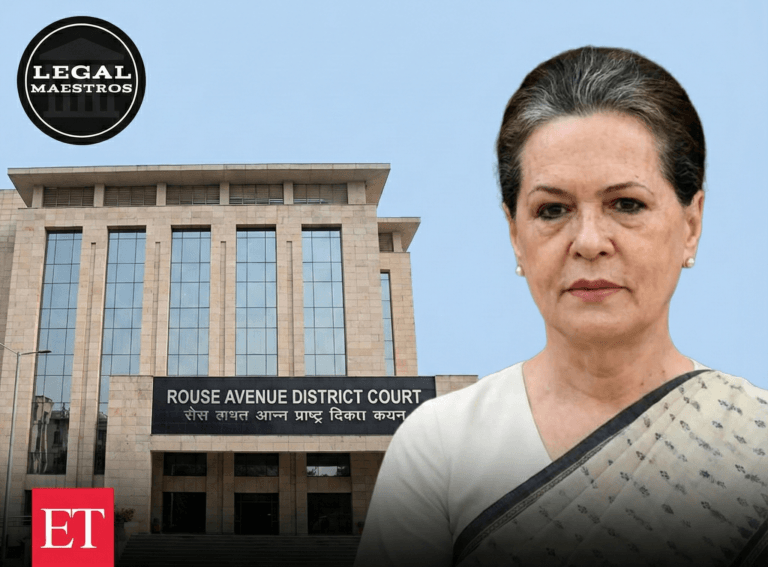
Factual Background of the Case
In Ravindra s/o Laxman Narete v., a 25-year-old man was accused of raping a girl of 17 years old. Maharashtra state. Approximately at 1.15 p. m. on 23 October 2015, the accused has slowed down when he was passing by the girl and her cousin coming back home on their motorbikes. The accused then requested the victim to utter her name while taking hold of her hand. He simply uttered, “I love you.”
The girl was able to escape as a consequence, informed her father, and lodged a complaint against him under POCSO Act Sections 354-A(i), 354-D, and 8 in a formal manner.
The defendant was convicted by the court of trial and sentenced to a three-year imprisonment term and also fined ₹5,000.
For any queries or to publish an article or post or advertisement on our platform, do call at +91 6377460764 or email us at contact@legalmaestros.com.
Arguments Advanced by the Appellant
The counsel for the appellant argued that the conviction was legally unsustainable. It was submitted that there was no sexual intent in the alleged act and that a mere expression of affection could not be construed as sexual harassment. It was pointed out that the prosecution failed to examine any independent witnesses despite the incident allegedly taking place in a public area. The defense also stated that there was no repeated interaction between the victim and the accused, which is a necessary ingredient under Section 354-D IPC for the offense of stalking.
The defense further submitted that the evidence regarding the victim’s age was insufficient, and there were indications of previous enmity between the victim’s father and the accused relating to agricultural water supply. It was therefore argued that the possibility of false implication could not be ruled out.
Rationale of the High Court
Justice Urmila Joshi-Phalke of the Nagpur Bench of the Bombay High Court analyzed the circumstances and evidence to determine whether the act amounted to sexual harassment or sexual assault.
- Proof of Age under POCSO:
The birth certificate of the victim was brought before the Bombay High Court in order to establish her minority. The document was also held as genuine under the Registration of Births and Deaths Act, 1969, and the Indian Evidence Act, 1872. Accordingly, the victim was irrevocably held to be a minor.
- Assessment of ‘Sexual Intent’:
The question was as to whether the mere utterance “I love you” and holding the hand amount to sexual harassment or sexual assault under the law or not. The Court emphasized that “sexual intent” is a subjective state of mind and must be established through evidence.
- Application of Section 354-A IPC:
The Court held that a mere statement of confession, like saying “I love you” and holding someone’s hand, without any further gestures or explicit conduct, does not amount to “sexual harassment.” There should be evidence that indicates the sexual intent. Here, no such evidence was found.
- Section 8 of the POCSO Act:
Section 8 punishes “sexual assault,” defined under Section 7 of the Act as any act involving physical contact with sexual intent. The Court noted that there was no touching of private parts or any act resembling sexual intent. Thus, conviction under this provision was not justified.
- Section 354-D (Stalking):
The requirement under the offense of stalking is that there should be repeated attempts to contact or follow a woman despite her disinterest. The prosecution’s evidence did not show any repetition or persistence by the accused. Hence, this charge also failed.
Judgment of the Bombay High Court
The High Court allowed the appeal and acquitted the accused. The conviction and sentence passed by the trial court were set aside. The Court held that a casual utterance of affection like “I love you” and accidental body contact by way of holding hands, where there is no presence of any sexually colored act or persistent conduct, does not meet the ingredients of sexual harassment or assault under IPC or POCSO.
The Court emphasized that context and evidence should be used to determine “sexual intent” and that criminal law is irrelevant in situations where the statutory requirements are not met. The Court emphasized that criminal law cannot be applied in situations where the statutory components of the offense are missing and that the definition of “sexual intent” must be cautious and supported by evidence.
Legal Implications and Analysis
1. Explaining “Sexual Intent” under POCSO & IPC:
This judgment has critical judicial insight into how courts should assess mens rea in POCSO and sexual harassment cases. The term “sexual intent” is not defined in statutes and must be inferred contextually. The Court referenced the precedent Bandu Vitthalrao Borwar v. State of Maharashtra, which underscored that expressing “I love you” does not by itself connote sexual intent unless corroborated by additional behavior.
2. Overruling the Trial Court’s Approach:
The Sessions Court had only proceeded on the victim’s statement and presumed intent without correctly applying the legal definition of “sexual assault.” The High Court reverses it by stressing that the criminal process cannot depend entirely on presumption without a tangible evidentiary basis.
3. Reinforcing Evidentiary Standards:
The High Court’s requirement of establishing intent and verifying it with the surrounding circumstances provides a useful precedent. It upholds that allegations, as powerful as they may be emotionally, must overcome the test of legal requirements and objective evidence.
Conclusion
This judgment is a strong reminder that not all morally or socially doubtful behavior can be criminalized. The courts need to walk carefully while interpreting legislation related to sensitive issues such as sexual offenses, especially under POCSO, so as not to make justice tantamount to punishment for gray offenses. The judgment finally reaffirms the doctrine that criminal liability must be proven beyond a reasonable doubt, and every conviction ought to be grounded in clear statutory provisions and established intent.







